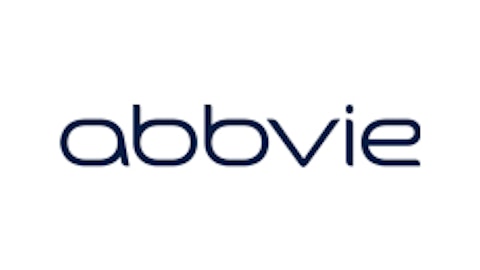Niche biotech company Warner Chilcott Plc (NASDAQ:WCRX) has been looking for an exit strategy ever since announcing strategic alternatives back in August 2012. The company has strong product lines in women’s health and gastroenterology, but it has had trouble finding success in its quest for new blockbuster drugs. Compounding Warner’s problems, the generic drugmakers have been nipping away at its market share in key areas, including its osteoporosis franchise. Fortunately, generic drugmaker Actavis Inc (NYSE:ACT) saw a compelling opportunity to jumpstart its own specialty drug ambitions, offering roughly $4.5 billion for Warner Chilcott Plc (NASDAQ:WCRX) back in May 2013.
Much like fellow drugmaker Valeant Pharmaceuticals Intl Inc (NYSE:VRX), Warner prefers to buy developed drug programs, rather than to expend significant resources on risky research and development activities. Warner’s purchase of The Procter & Gamble Company (NYSE:PG)’s branded pharmaceuticals business in 2009 doubled its size and brought it leading osteoporosis and ulcer products. The company also bought significant market share in the contraceptive area with its 2003 purchase of Pfizer Inc. (NYSE:PFE)’s Loestrin product assets.
In its latest fiscal year, Warner Chilcott Plc (NASDAQ:WCRX)’s overall sales continued a multi-year decline, due primarily to patent expirations in its osteoporosis area. However, the company did enjoy sales gains in its contraceptive and gastroenterology segments, with its Asacol ulcer drug estimated to control half of the orally-administered U.S. market, according to data provider IMS Health. In addition, Warner enhanced its profitability with the outsourcing of international marketing for certain drugs to European drug giant Sanofi.
With key patent expirations looming in 2014 and a heavy debt load, roughly $4 billion as of December 2012, Warner Chilcott Plc (NASDAQ:WCRX) needed a deep pocketed partner capable of expanding distribution of its leading drug programs. Actavis Inc (NYSE:ACT) certainly fits the bill with a 60 country geographic footprint and a sizable distribution business in Europe. The company, formerly known as Watson Pharmaceuticals, has been one of the industry’s big success stories of the past five years, as it grew into the world’s #3 generic drugmaker.
In its latest fiscal year, Actavis Inc (NYSE:ACT) reported solid financial results, with increases in revenue and adjusted operating income of 29.0% and 19.2%, respectively, versus the prior year. The company’s sales growth benefited from launches of generic versions of popular cholesterol and attention deficit drugs, as well as from its international acquisitions of generic competitors in Europe and Asia. However, Actavis’ operating margin declined moderately, as a result of rising costs for the ramp-up of its new products.
Actavis Inc (NYSE:ACT) is going hard after the specialty drug segment with its purchase of Warner, as well as its January 2013 acquisition of Uteron Pharma, a biotech company focused on the women’s health area. With a purchase price of roughly five times operating cash flow, Actavis received considerable value for Warner Chilcott Plc (NASDAQ:WCRX) despite the large associated debt load. The company should be able to create significant efficiencies in Warner’s overhead, leading to higher profits that will allow it to pay down the transaction’s debt.
Despite Actavis Inc (NYSE:ACT)’ obvious upside, its shift into the specialty drug business puts it into more direct competition with branded drug giants, especially Bayer, Johnson & Johnson, and Merck in the contraceptive segment.Teva, the world’s #1 generic drug maker has been employing a similar strategy for years, with varying degrees of success. As such, investors might want to look down the supply chain to the pharmaceutical suppliers that help ensure a steady supply of raw material ingredients, like Cambrex Corporation (NYSE:CBM).
The company is one of the leading providers of active pharmaceutical ingredients to Warner Chilcott Plc (NASDAQ:WCRX), as well as the rest of the industry. Drug companies use Cambrex Corporation (NYSE:CBM)’s products in order to supplement their internal capacity and to preserve consistent supply for their key drug programs. In the past two years, Cambrex has reinvigorated its growth as drug makers have expanded their development programs, leading to strong stock price gains.
In its latest fiscal year, Cambrex Corporation (NYSE:CBM) reported solid financial results, with increases in revenues and adjusted operating income of 8.2% and 50.0%, respectively, compared to the prior year. Despite slightly lower average product pricing, down 2% during the period, the company enjoyed double-digit volume gains that led to better plant operating efficiency and a higher operating margin. Looking ahead, Cambrex is looking for growth opportunities in its small Asia-Pacific segment, currently accounting for only 5% of sales, primarily through its majority stake in India-based Zenara Pharma, a leading supplier to the region’s drug makers.
Actavis should generate value from its acquisition of Warner Chilcott Plc (NASDAQ:WCRX), although Actavis Inc (NYSE:ACT)’ stock price valuation has been stretched after a 70% gain over the past year. In addition, it needs to manage looming patent expirations and the higher costs of the branded drug segment. The pharmaceutical suppliers may be a better investment choice, as they will benefit from higher global drug sales, regardless of the brand provider. As such, Cambrex Corporation (NYSE:CBM) is the one to own.
The article Can You Profit From This Pharma Tie-Up originally appeared on Fool.com.
Robert Hanley owns shares of Cambrex Corporation (NYSE:CBM). The Motley Fool has no position in any of the stocks mentioned. Robert is a member of The Motley Fool Blog Network — entries represent the personal opinion of the blogger and are not formally edited.
Copyright © 1995 – 2013 The Motley Fool, LLC. All rights reserved. The Motley Fool has a disclosure policy.






